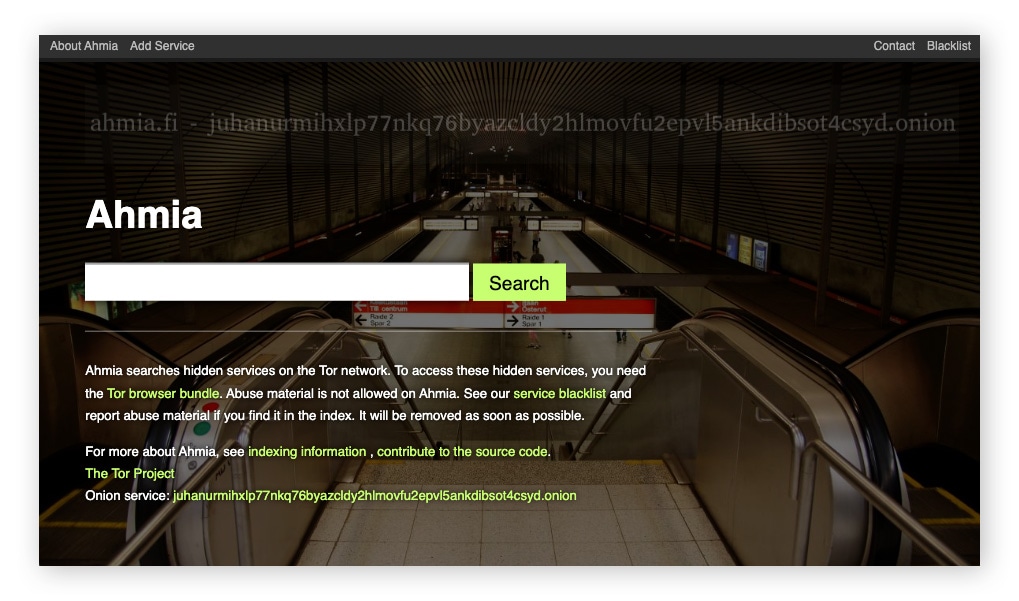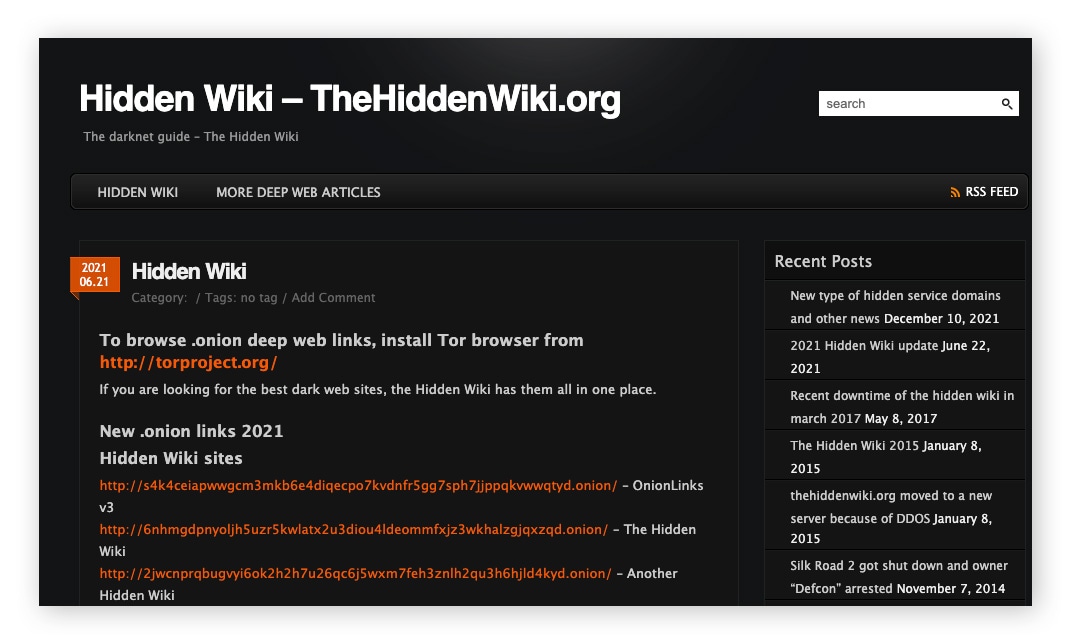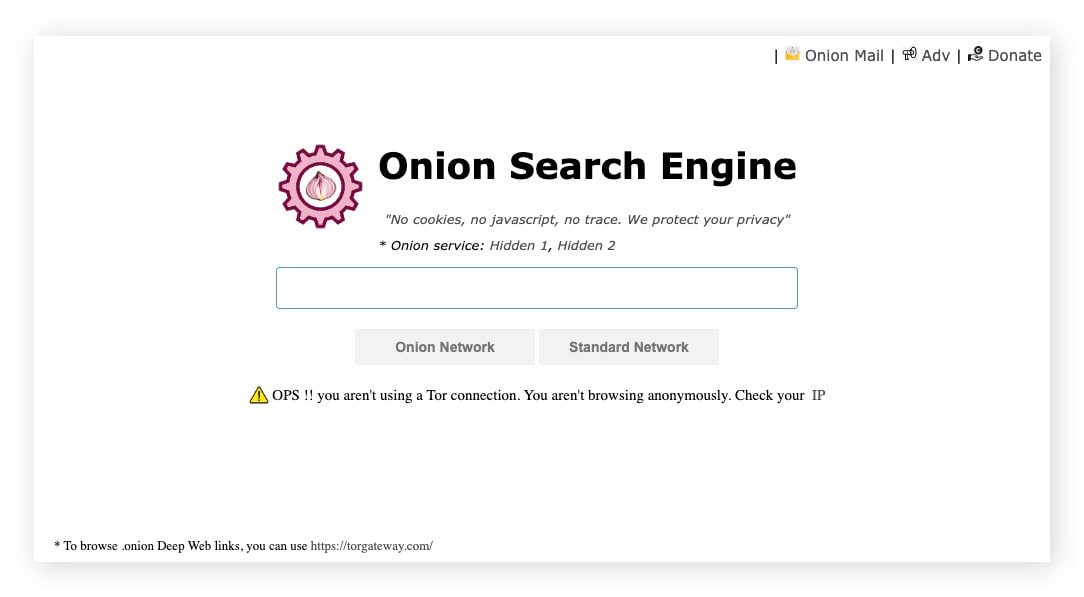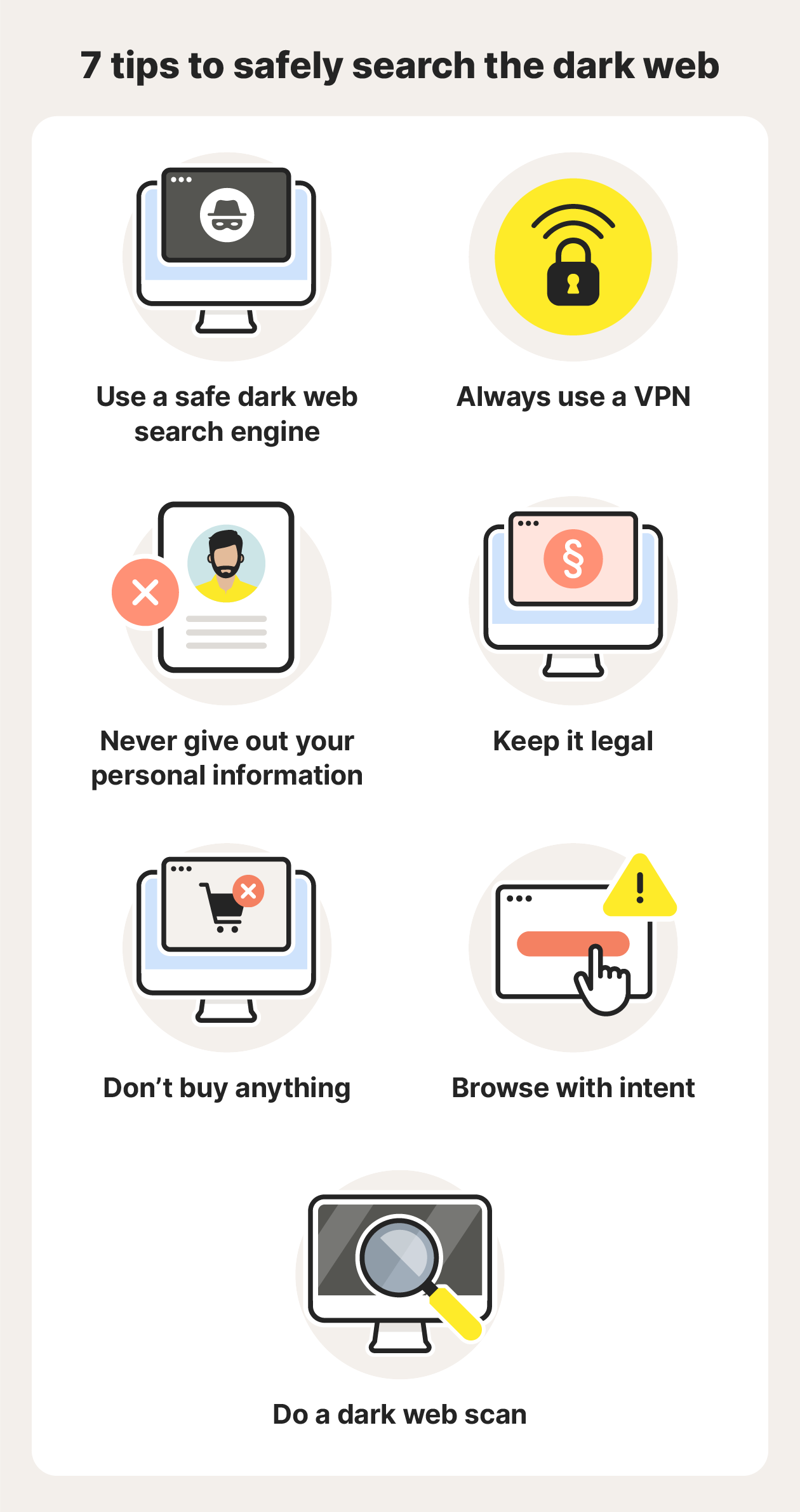What are the best dark web search engines?
You might have arrived here through Google, but you’ll be hard pressed to use Google to get to the dark web. Discover some of the best dark web search engines and get tips on how to search the dark web more safely, including using a VPN to encrypt your connection and help keep your browsing activity private.

A dark web search engine allows you to access sites that aren’t listed on traditional search engines like Google and Bing. These websites live on the unindexed, hidden part of the internet known as the dark web. To access the dark web, you need a dark web browser like Tor Browser. And many people use a VPN with Tor, because while the Tor network offers anonymity and privacy, extra security is recommended when accessing the dark web.
Before we get started, it’s important to note that while there are many legitimate reasons you may want to visit the dark web, it’s also evolved into an area where illicit activities abound and dangerous goods and services are traded. Always exercise extreme caution whenever browsing the dark web.
Now let’s get started. Here are some of the top dark web search engines,* listed alphabetically:
1. Ahmia
Ahmia is a dark web search engine that also shows search results for regular search engine queries. But to view the dark web pages from the results you need to use Tor Browser. Ahmia is notable for blocking explicit material and letting users report abusive content.
- Known for: Not allowing abusive material to help make searching the dark web safer.
- User experience tip: Ahmia makes dark web searches more accessible to regular internet users.


2. DuckDuckGo
DuckDuckGo is almost certainly a search engine you’ve heard of—it’s a popular and powerful search engine that works for both the surface web and the dark web. DuckDuckGo also has its own browser with an interface like Google Chrome, which makes it easy to use
Even the clear web versions of the DuckDuckGo search engine and browser are notable for their privacy features, allowing users to search the web with strong protections against online tracking.
- Known for: Privacy-centric focus and protecting users’ anonymity.
- User experience tip: DuckDuckGo is a good option if you’re new to the dark web and want to use a simple interface.
3. Haystak
Haystak is one of the most comprehensive dark web search engines, with a search library of more than 1.5 billion pages. It has a freemium model with ads, and a paid version for ad-free browsing and extra features.
- Known for: Its extensive search library and fast search returns.
- User experience tip: The paid version of Haystak offers an ad-free experience and access to additional search data.
4. Hidden Wiki
The Hidden Wiki is often likened to the dark web’s answer to Wikipedia. It’s technically not a dark web search engine but is still a useful tool to navigate the dark web and find sites more easily based on categories.
- Known for: Acting as a directory service with links to marketplaces, forums, and other services.
- User experience tip: Use the links provided to go directly to .onion sites, but make sure they’re from reputable sources before clicking.


5. Kilos
Kilos is a dark web marketplace search engine that lets users search for specific products they’re looking for. It offers extensive and unfiltered search results. However, because Kilos is for the dark web, many of the items you may find may be unsafe or illegal.
- Known for: Specializing in dark web marketplaces.
- User experience tip: A lot of threats lurk on the dark web, so be extremely careful when exploring dark web search results.
6. Not Evil
Not Evil is a non-profit organization that aims to follow what Google once famously used as its motto: “Don’t be evil.” On the Not Evil dark web search engine, users can label websites as “abusive” to help maintain the safety of search results.
- Known for: Creating a safer browsing experience on the dark web.
- User experience tip: Not Evil has a privacy-centric approach and doesn’t show ads.
7. Onion Search Engine
Onion Search Engine is available on the clear and dark web. Its motto is “No cookies, no javascript, no trace. We protect your privacy.” However, it does display ads on both the clear and dark web networks.
- Known for: Providing site descriptions next to browsing results so you can choose which sites you want to visit with a bit more confidence.
- User experience tip: You can set up an Onion Mail email account to help protect your privacy—no personal data is required to set up an account.


8. Recon
Recon is a dark web search engine that was built by HugBunter, a prominent dark web figure who is an administrator for the forum Dread. Recon allows users to search for specific products from dark web vendors and marketplaces as opposed to just the sites themselves.
- Known for: Finding products and specific vendors on the dark web.
- User experience tip: Recon offers plenty of information about its listed vendors, including reviews and ratings, which may reduce some of the risk involved when using the dark web.
9. Torch
Torch—a portmanteau of “Tor” and “Search”—is a seasoned dark web search engine that was one of (if not) the first of its kind. Its large search library, speed, and commitment to user anonymity make it a preferred choice for many people who browse the dark web.
- Known for: Pioneering the field of dark web search engines.
- User experience tip: New Onion sites are indexed daily, so despite its age, you can reportedly rely on it for up-to-date search results.
Why do you need a dark web search engine?
Regular search engines like Google and Bing don’t index dark web websites, so you need a dark web search engine to help search these hidden areas of the internet. So-called “onion sites” are only accessible via special network configurations or browsers like Tor that can connect you to .onion domains via onion routing. And dark web search engines can help you find sites on the onion network.
7 tips to safely search the dark web
Browsing the dark web comes with certain risks. Links and sites can be malicious, and transactions on the dark web may not be secure. Here are some ways to help stay safer when searching the dark web:
- Use a search engine that filters unsafe content: While it may be difficult to completely avoid content you don't want to see, use a dark web search engine that aims at filtering out fake or unsafe sites and abusive content.
- Always use a VPN: A VPN will give you added security to help protect your IP address from ISPs, hackers, and other cybercriminals who might be snooping on your online activity.
- Never give out your personal information: There are many shady figures on the dark web, and giving out personal information can expose you to hacking, identity theft, and other privacy threats.
- Keep it legal: The dark web has a variety of legitimate uses, such as avoiding censorship and finding independent sources of information. In fact, many well-known companies like the BBC and Facebook keep a presence on the dark web to help people access their content. But there is also illegal dark web activity you need to avoid.
- Don’t buy anything: The dark web is unregulated, so purchasing products on it can expose you to many potential risks and online shopping scams. It’s always recommended to do your online shopping on the clear web.
- Browse with intent: Don’t click suspicious links, visit dangerous sites, or stray from your goal. Be intentional and mindful when accessing the dark web, and close out all tabs when you’re done.
- Do a dark web scan: If you’re concerned that your data might be exposed on the dark web, you can perform a dark web scan to help check for data leaks.


Browse privately and more securely
Whether you’re on the dark web or the clear web, browsing the internet can expose you to data leaks, hackers, and other online threats. Norton VPN shields your IP address and encrypts your connection, helping to protect the personal information you send and receive and keep your browsing activity private.
FAQs about dark web search engines
The dark web may be shrouded in mystery and conjure images of shady back alleys and hidden forums, but there are many legitimate reasons people access the dark web. Here are some FAQs to help demystify the dark web:
Is the dark web safe?
The dark web itself is not necessarily unsafe, and many legitimate companies have a presence there. But because it’s not regulated, it’s also a potentially attractive place for cybercriminals to hang out. That's why it’s important to be extra careful when browsing the dark web—sites you can find there may host sensitive content, foster illegal activity, or pose security threats. However, there are steps you can take to stay safer on the dark web, including never sharing personal info, using a VPN, and installing antivirus software.
Why doesn’t Google index the dark web?
Regular search engines like Google use “crawlers” to index their pages, following links from known web addresses to index other linked pages. The dark web lacks this interconnectedness. The dark web also uses a different protocol that a regular browser doesn’t follow. Finally, Google may not want content that appears on the dark web showing up in its search results.
How does a dark web search engine work?
A dark web search engine works like a regular search engine, but it’s designed to retrieve information from websites hosted on the dark web. Dark web search engines use specialized web crawlers to access the dark web, indexing content while respecting the network's anonymity protocols. The engines provide search results based on keywords, but the index is typically smaller and less comprehensive due to the hidden nature of many dark websites.
What happens if you go on the dark web without a VPN?
A VPN encrypts your online activity and shields private information such as your IP address, providing an additional layer of security and anonymity online. Although many dark web search engines do not track your activity, if you don’t use a VPN with Tor your ISP may be able to see your activity and hackers may be able to follow you online.
How big is the dark web?
The dark web reportedly makes up about 6% of the internet, whereas the deep web accounts for 90% of pages, and the clear or surface web 4%. This makes the dark web slightly bigger than the surface web.
What’s the difference between the deep web and the dark web?
The dark web is a subset of the deep web, neither of which can be indexed by regular search engines. The deep web is significantly larger than the dark web and includes sites like email accounts, banking portals, and subscription services that may contain sensitive information. To visit the deep web, you don’t need a special browser, but you do need to use login credentials. The dark web, by contrast, includes sites that sit on the onion network and require special software like Tor to access.
*Norton does not endorse or recommend any of the products or services reviewed herein; our assessments are based on the author’s personal experience and general industry opinion.
Editorial note: Our articles provide educational information for you. Our offerings may not cover or protect against every type of crime, fraud, or threat we write about. Our goal is to increase awareness about Cyber Safety. Please review complete Terms during enrollment or setup. Remember that no one can prevent all identity theft or cybercrime, and that LifeLock does not monitor all transactions at all businesses. The Norton and LifeLock brands are part of Gen Digital Inc.






Want more?
Follow us for all the latest news, tips, and updates.